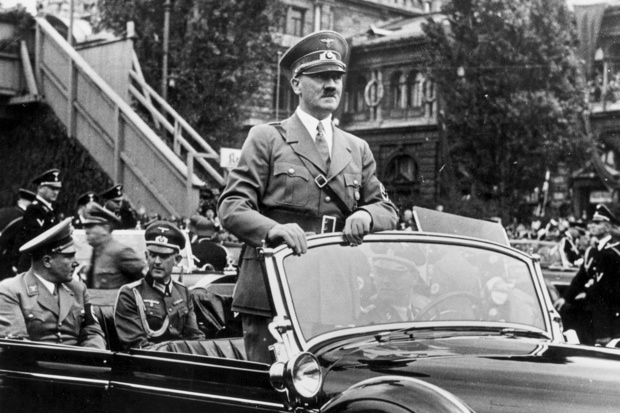From repentance to restitution, Germany has done an exemplary job of facing up to its Nazi past — with a little help, it might waspishly be said, from the victorious Allies. Every aspect of life, from education and philosophy, to science, politics, music and the law, was held up to the light early on and thoroughly cleansed. There has, though, been one puzzling exception; a place where shadows linger. That is the art world.
The discovery, announced this week, of almost 1,400 paintings stashed away in a Munich apartment, lifts the curtain a fraction, but only a fraction, on this hidden realm. Indeed, the scale and the richness of the find — which includes paintings by Picasso, Renoir, Matisse and Chagall — only underlines how much more remains to be found, almost 70 years after Germany’s defeat.
Many thousands of works are still catalogued as missing, and it must be doubtful now how many will ever be traced, let alone restored to their rightful owners. Tens of thousands were taken to Russia as war booty, and caused diplomatic friction this summer when Vladimir Putin took Angela Merkel to see some of them displayed at the Hermitage in St Petersburg.
The works that are believed to remain in Germany fall into three main categories. There were those bought by the German state, often in occupied countries at distressed prices, for Hitler’s projected museum of world art in his birthplace, the Austrian city of Linz. There were works plundered from the homes of their owners — mostly Jews — who were imprisoned or fled. And there were works confiscated by the Nazi authorities as being ‘degenerate’, in other words not in compliance, in style or substance, with the conservative and didactic Nazi art canon.
Preliminary reports suggest that the canvases found behind stacks of tinned food in the Munich flat were mostly taken from France and may belong to, among others, the family of Anne Sinclair, the television presenter (and ex-wife of Dominique Strauss-Kahn). But the discovery raises as many questions as it answers. The elderly owner of the flat, Cornelius Gurlitt, is the son of a prominent Nazi-era art dealer, one of only four individuals charged by Hitler with buying and selling mostly confiscated modern art on behalf of the state. If anyone was seriously interested in tracing missing pictures, this might have been an obvious place to look. Indeed, the apparently haphazard nature of the find (made during a routine tax investigation) and the year-long delay before it was made public give the impression of a certain reluctance on the part of the authorities to pursue missing art.
The fate of art has justly been described as the last unfinished business of the second world war. I experienced this for myself last year, quite by chance, visiting the small town of Worpswede near Bremen. I was following in the tracks of an early-20th-century sculptor, Ernst Barlach, who spent time at the famed artists’ colony there, in the striking landscape of moors and marshes. But Worpswede today is an extraordinary place, stuffed with respectable art dealerships and haunted by a past that is not hinted at in mainstream guidebooks. The truth about Worpswede is that the existing artists’ colony was earmarked by Hitler as the national centre for conformist art. The buildings remain as a gallery that no one seems entirely sure what to do with. A local journalist, Ferdinand Krogmann, has chronicled its history in minute detail, but his efforts do not appear to have made him many friends.
You find a similar reticence at the splendidly refurbished German Museum in Nuremberg. As well as hundreds of suits of armour and dozens of period stringed instruments, the museum displays a few examples of German art from between the wars. The section features in the index, but is extremely hard to find and offers little information on the cultural realities of the period.
There was a hint last year that Germany might be ready to fill in this blank in its 20th-century cultural history. But it was and it wasn’t. In a series of exhibitions staged in Berlin on the theme ‘Diversity destroyed’ was an exhibition, ‘Art in Berlin, 1933–1938’. But it was in a local gallery in the east of the city, and somewhat off the beaten track. It was not the unambiguous recognition that is called for. Nor is there any exhaustive register of the works that are still missing.
Until the German art world is prepared to confront its past, those trying to fill in the gaps will depend on more chance discoveries, such as the trove in Cornelius Gurlitt’s flat. The consolation might be that each new find offers another glimpse of the truth through an increasingly threadbare tissue of lies.






Comments